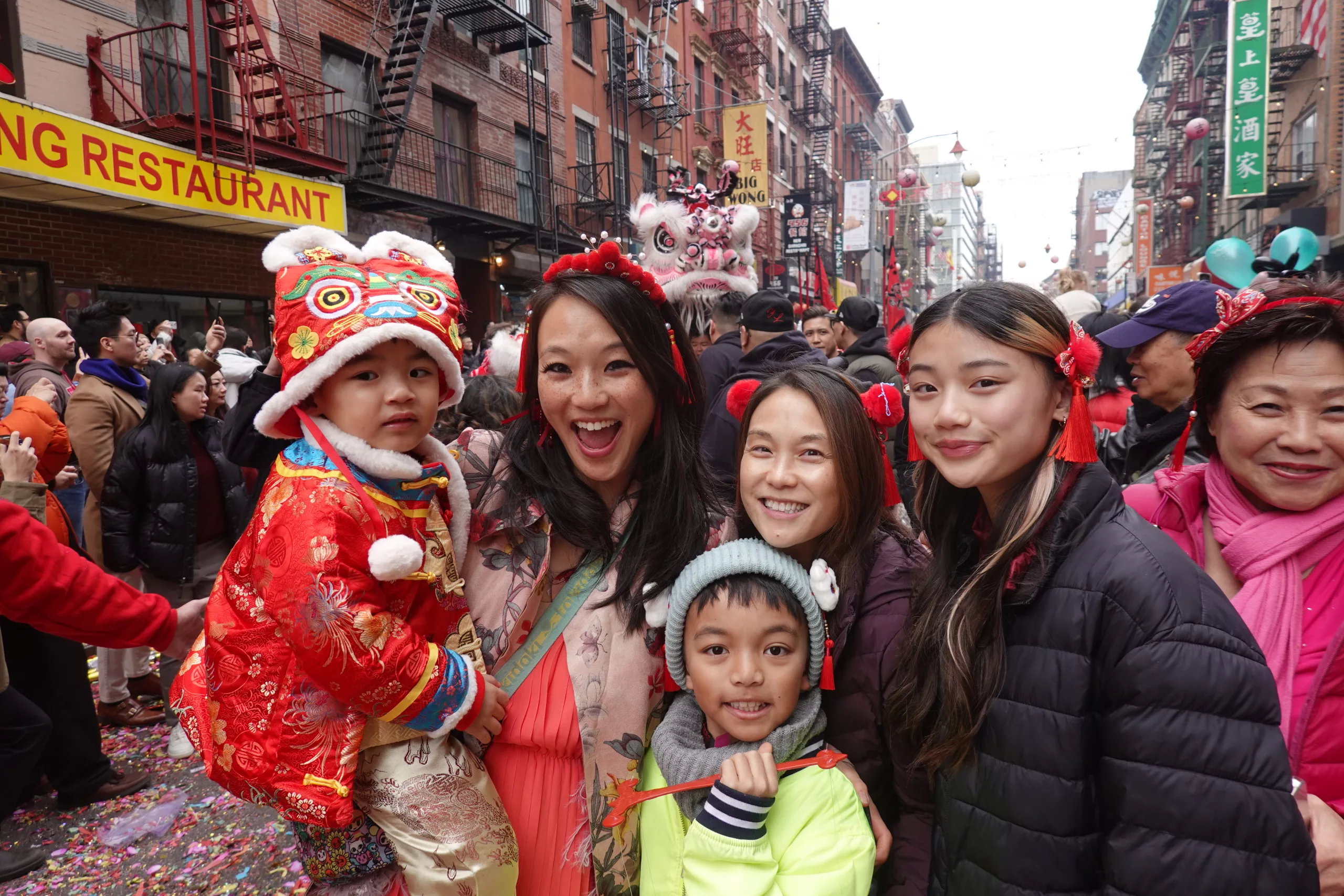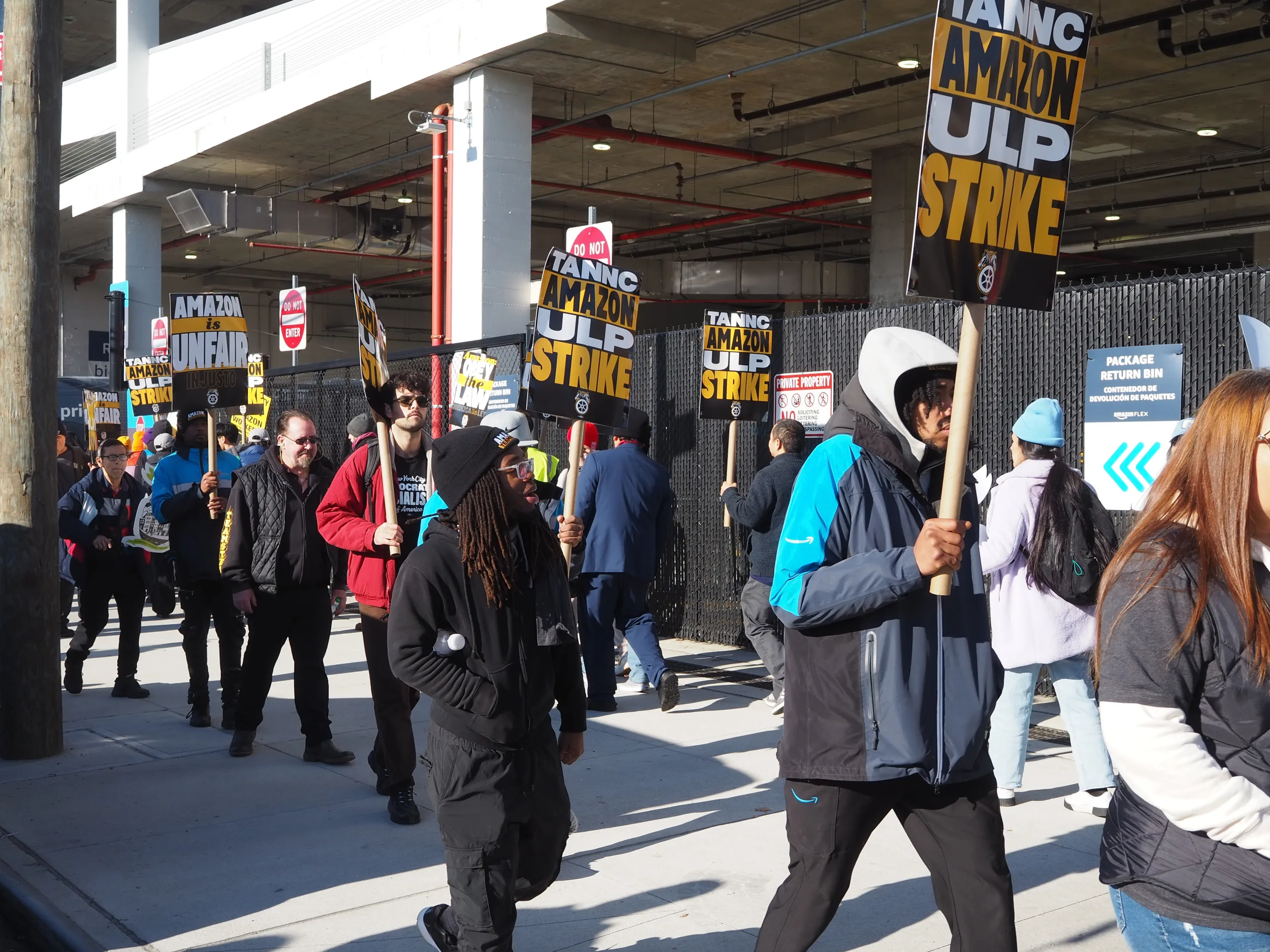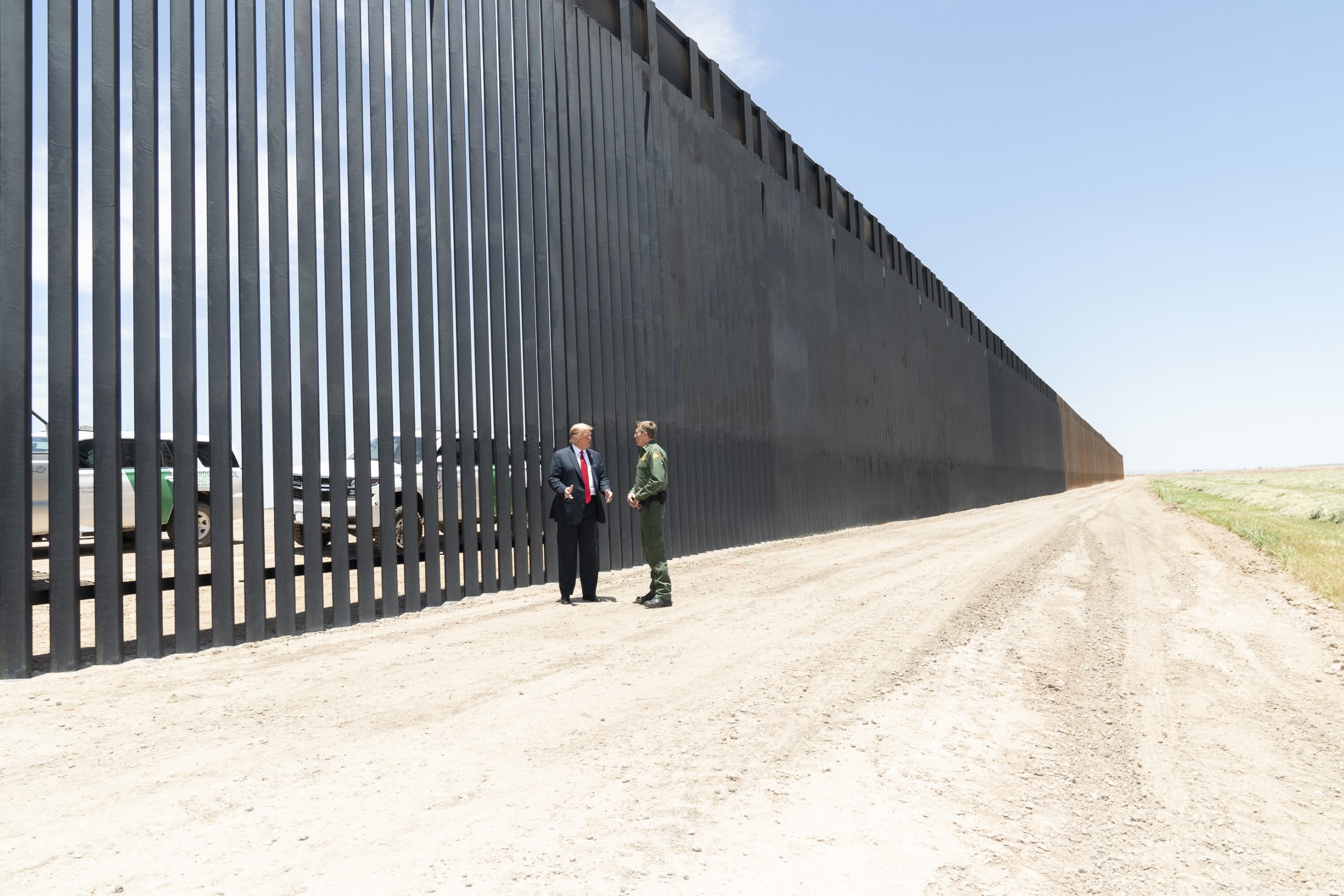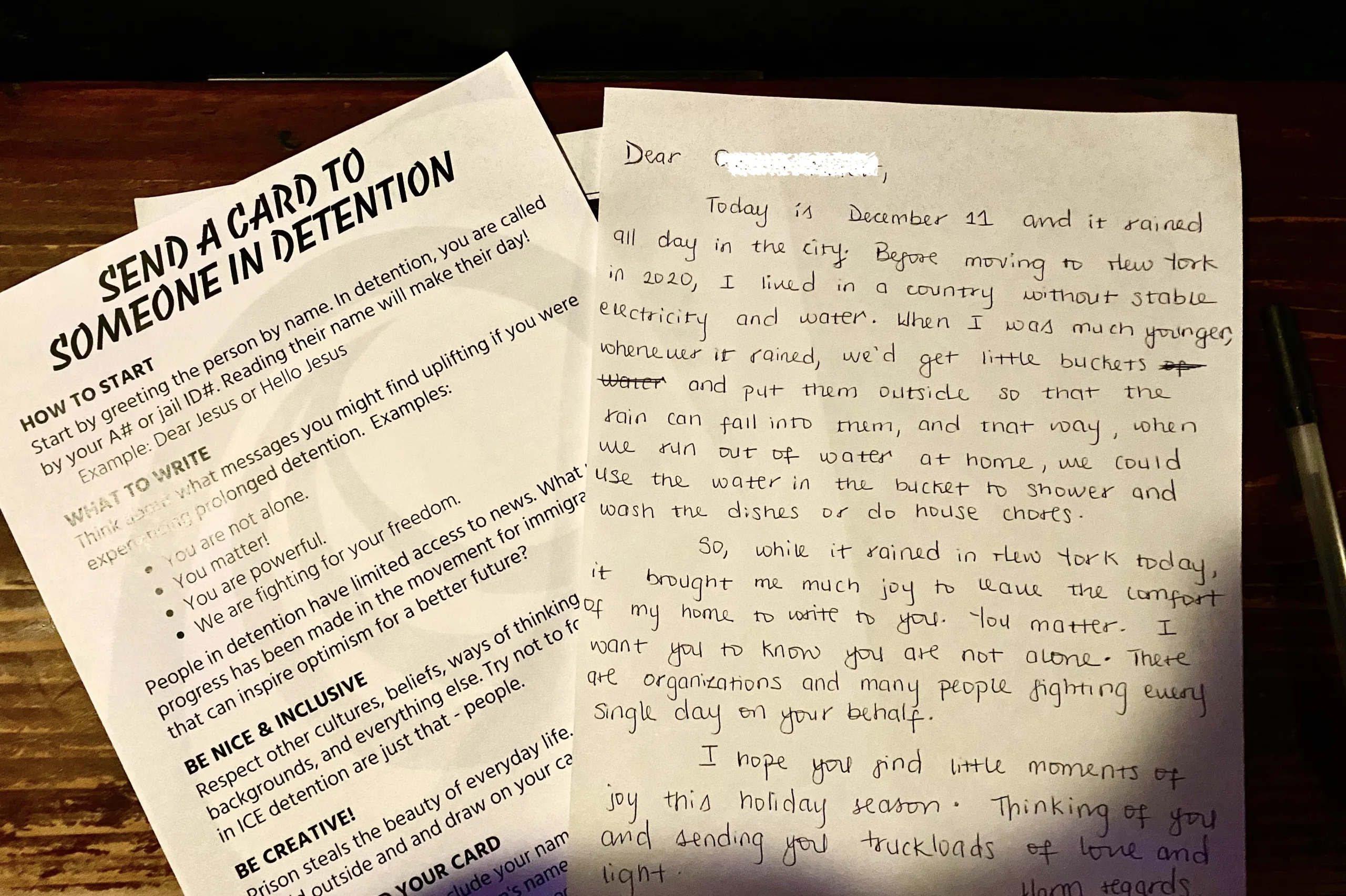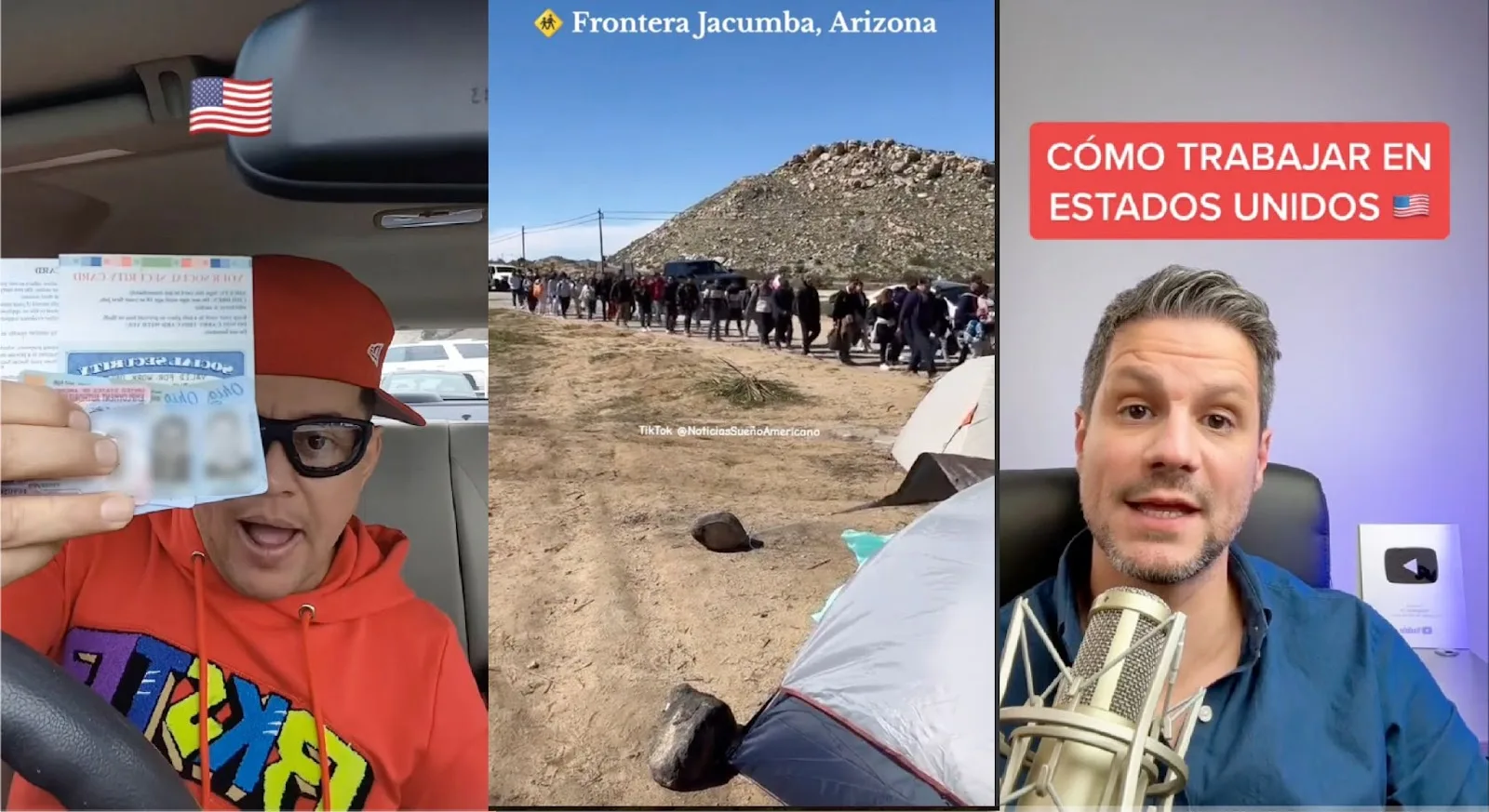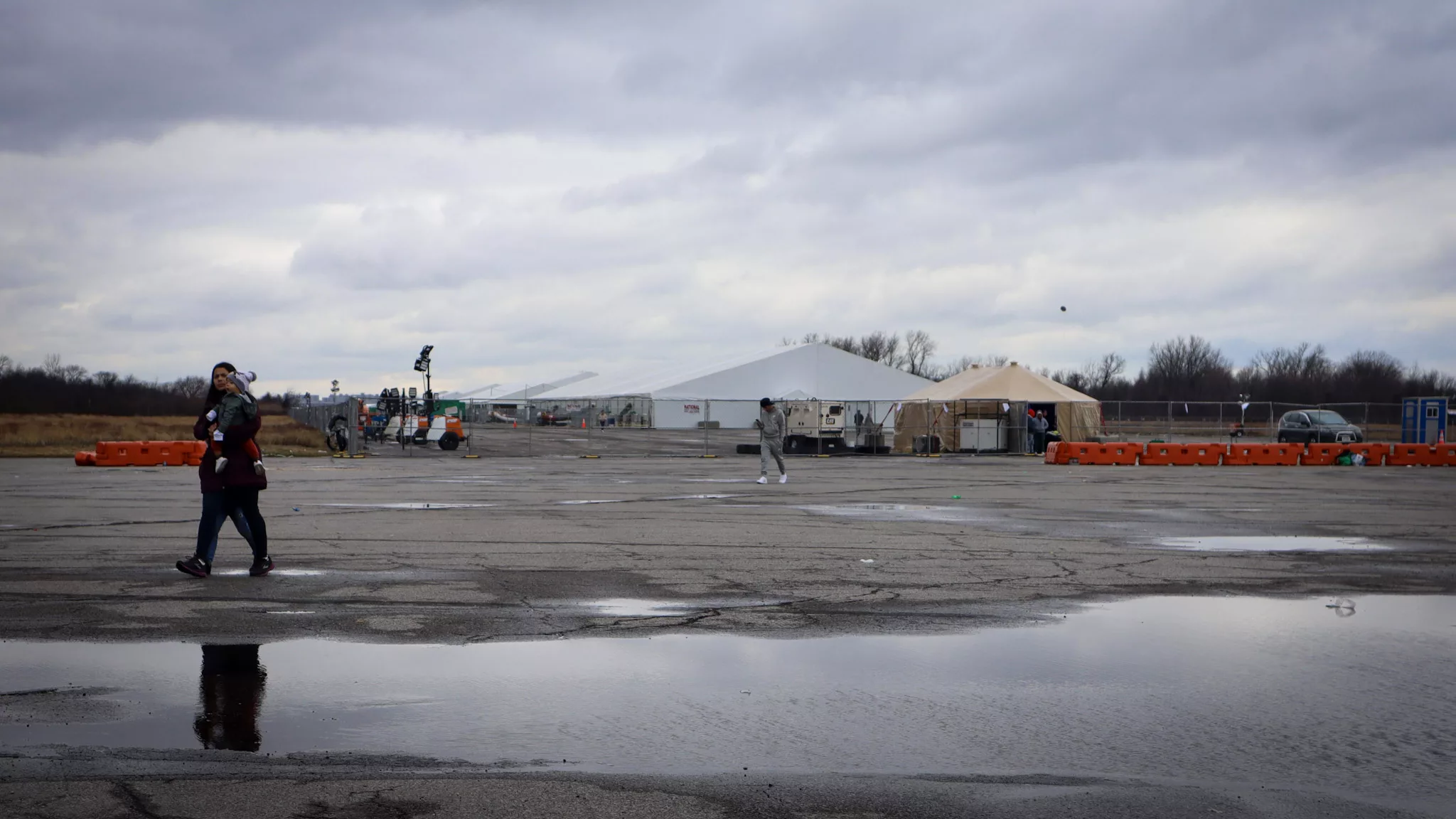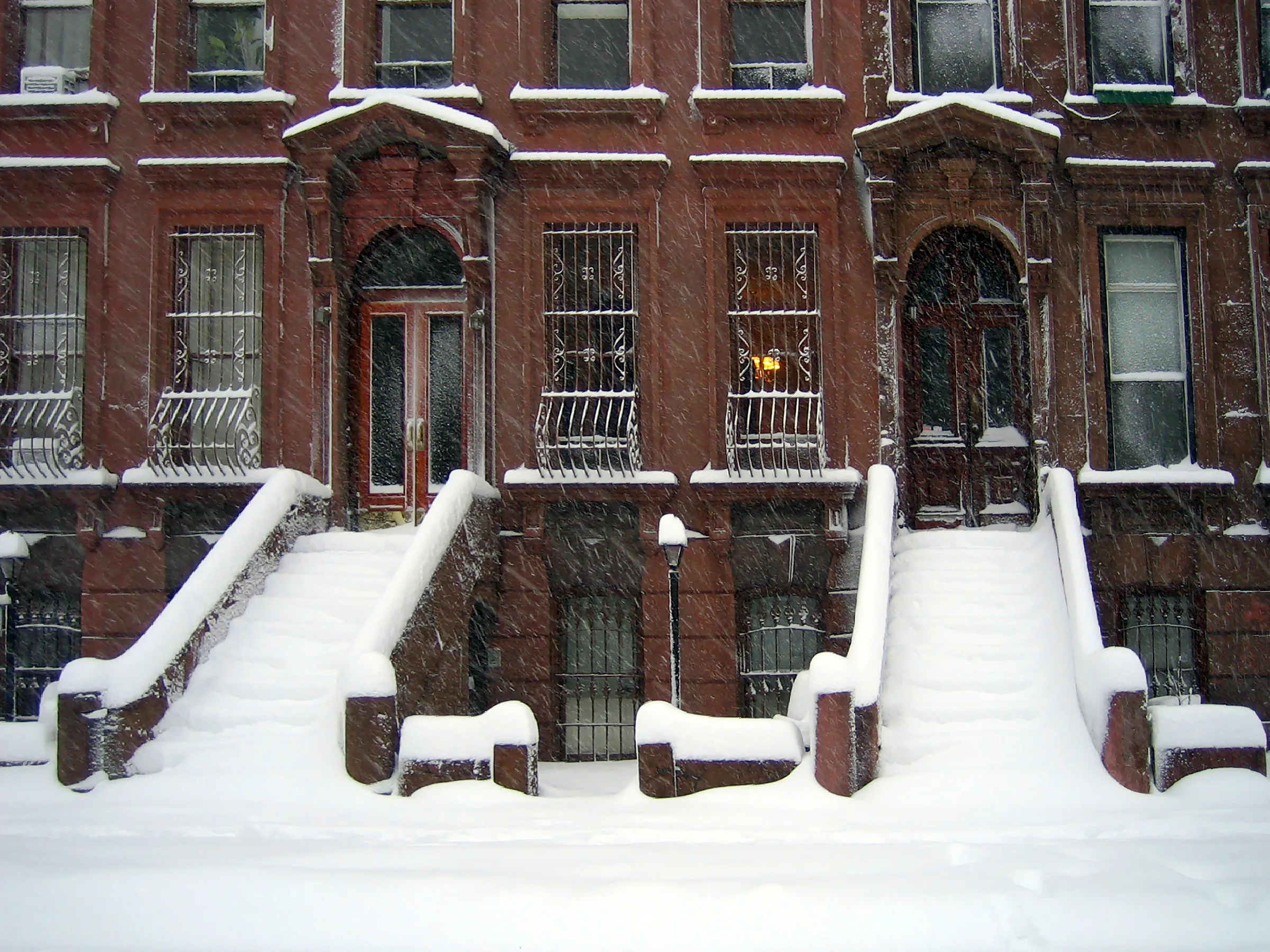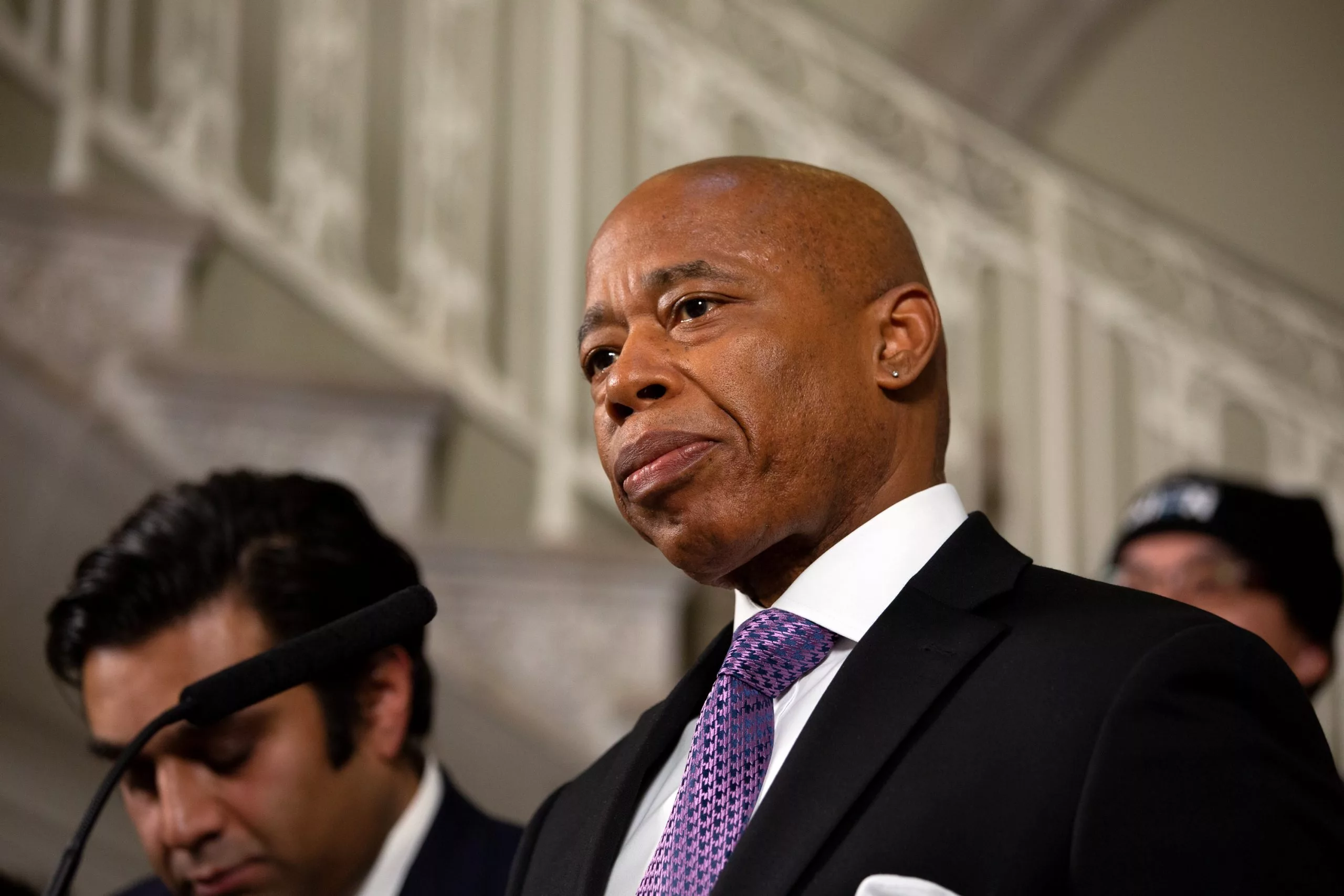Last Saturday marks the first day of the Lunar New Year, and Manhattan’s Chinatown is hosting its annual New Year Firecracker Ceremony & Cultural Festival. This event has been a tradition for 24 years since its inception in 1998, with a two-year hiatus due to the pandemic. It stands as one of the oldest and largest events in New York City’s Lunar New Year celebrations, drawing thousands of locals and tourists alike each year.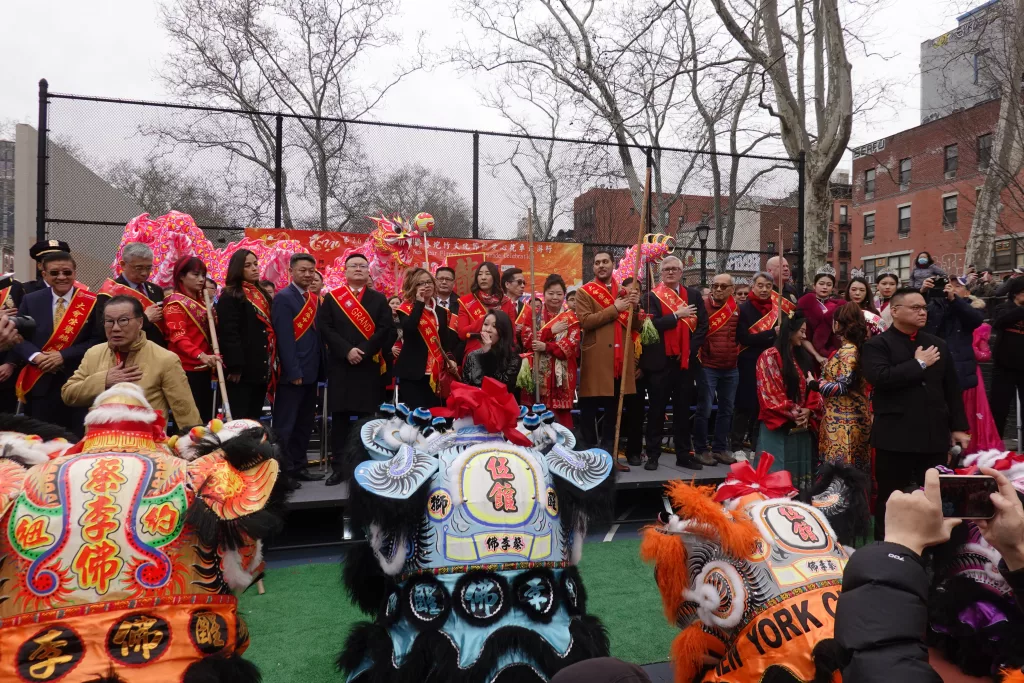
The event is organized by Better Chinatown USA. At 12:30 pm, 1 million firecrackers were set off, creating an electrifying Lunar New Year atmosphere with their loud crackling and rising smoke, accompanied by cheers from the surrounding audience. This year, according to the Chinese zodiac, is the Year of the Dragon, and a specially designed dragon-shaped firecracker panel adds to the festivities.
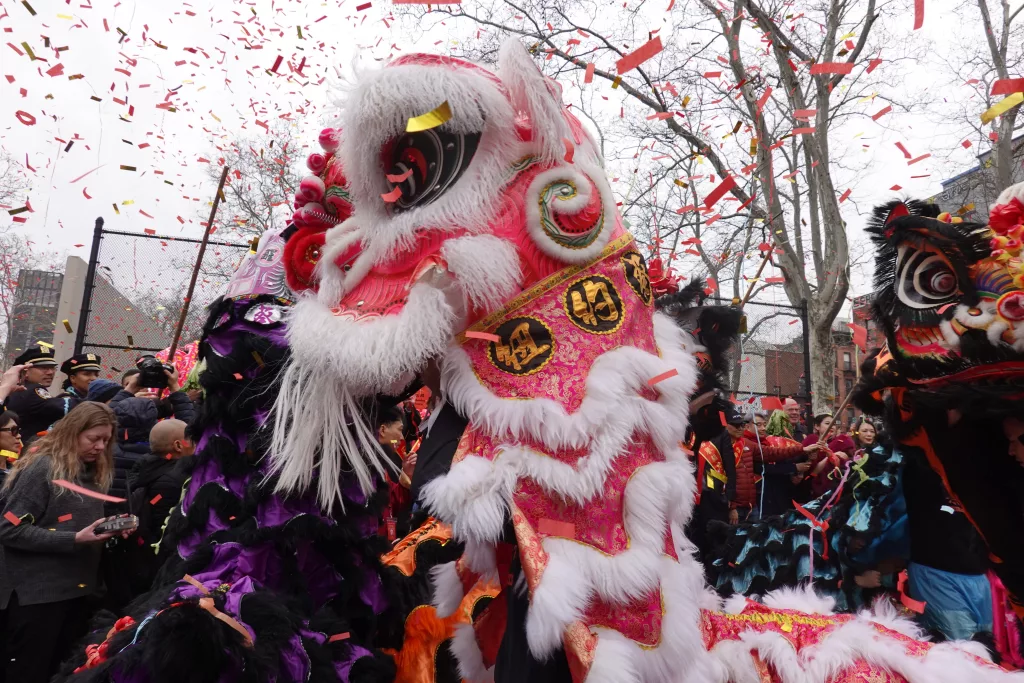
In Chinese culture, lighting firecrackers is a traditional custom of the Lunar New Year. According to Chinese folk tales, firecrackers are used to drive away the plague god. Passed down from generation to generation, setting off firecrackers has become a ritual to dispel evil spirits and usher in the new year. Over time, the use of firecrackers has expanded beyond their original purpose of driving away the plague god and has become intertwined with various festivities and ceremonies. They have evolved into an important symbol of grand occasions, including weddings, birthday celebrations, store openings, factory inaugurations, and groundbreaking ceremonies for new constructions.
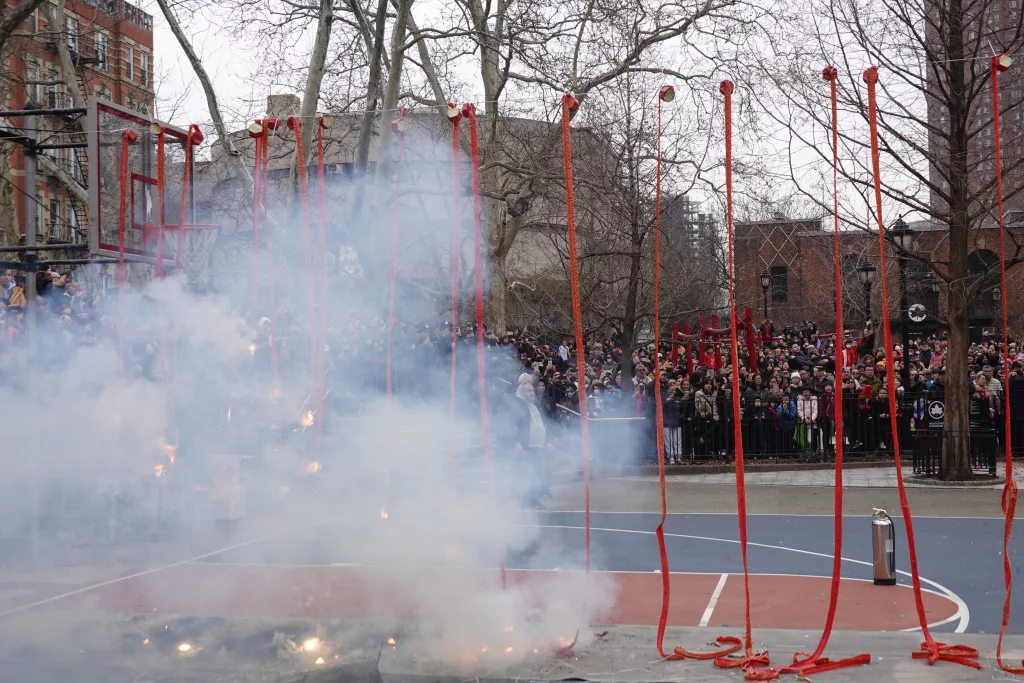
However, due to safety concerns, firecrackers are banned or restricted in many cities and counties in China. Therefore, many Chinese immigrants who come to New York often lament that the Lunar New Year celebrations in New York seem to have a more festive atmosphere.
In addition to the firecrackers, there was a vibrant dragon and lion dance performance. The lion dance was presented by the New York Choy Lay Fut Lion Dance Team, a renowned team with a history of 59 years.
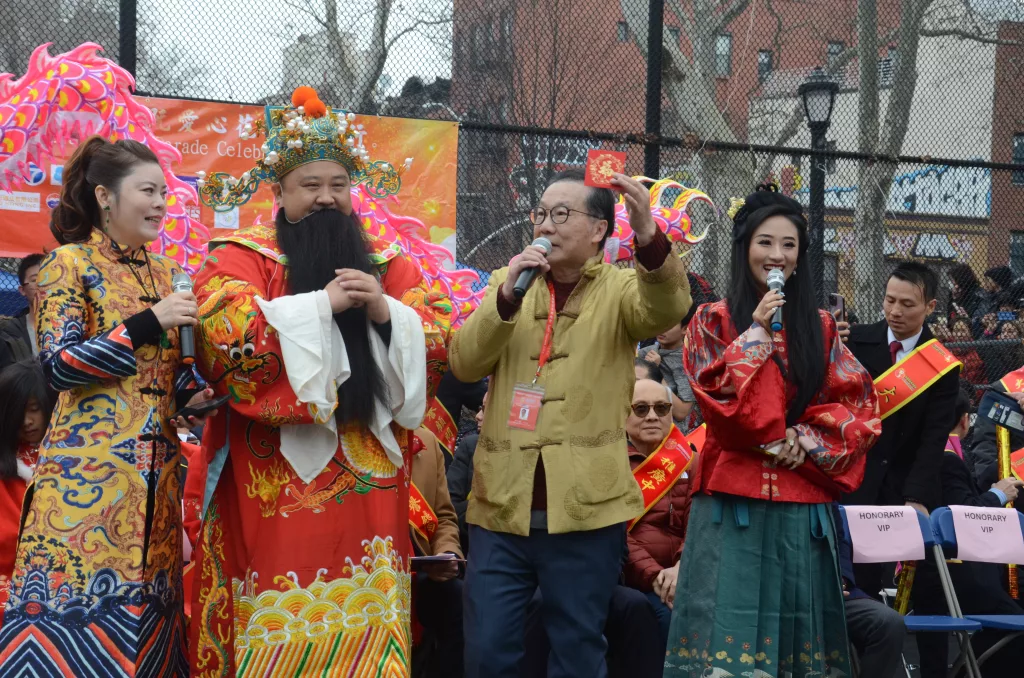
According to organizer Steven Tin (second from the right), by the end of the 1990s, the garment factory industry began to decline, significantly impacting the garment factories clustered in Chinatown. This downturn led to a decrease in foot traffic and economic challenges. Tin observed that many Chinese New Yorkers were traveling to casinos in Atlantic City, New Jersey, to celebrate the Lunar New Year. This prompted him to conceive the idea of organizing Lunar New Year celebrations in New York City’s oldest Chinatown to attract visitors and bolster the local economy.
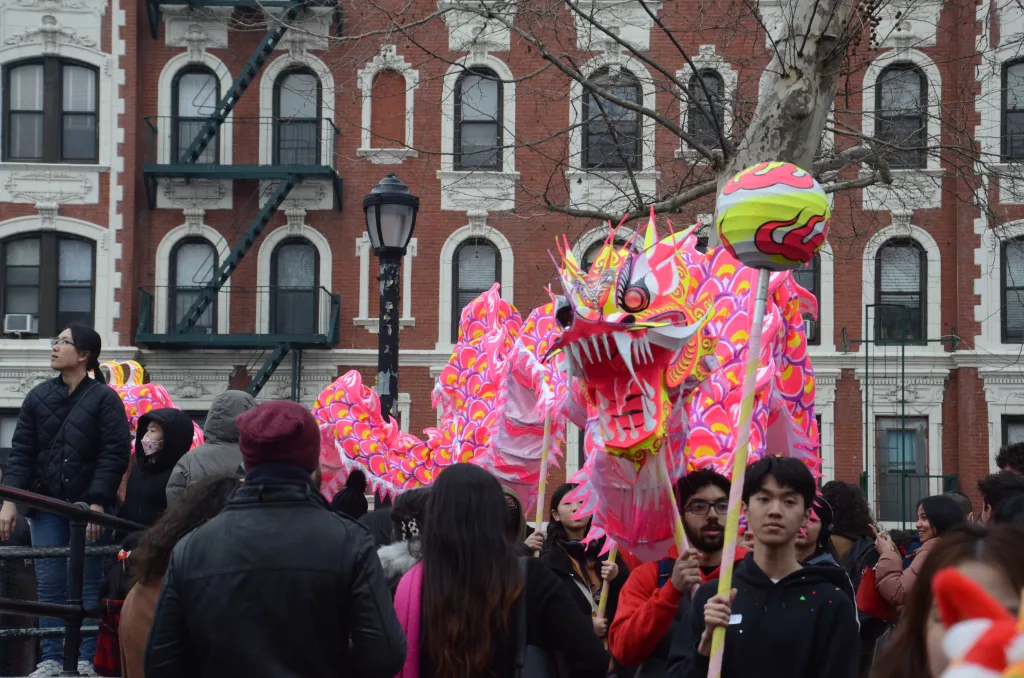
“I wanted to encourage Chinese New Yorkers to stay in New York City for Lunar New Year. This holiday is about celebrating with families, not about gambling in casinos,” remarked Tin. Additionally, he hopes that showcasing Lunar New Year celebrations will help mainstream America gain a deeper understanding of the culture and traditions of the Chinese community.
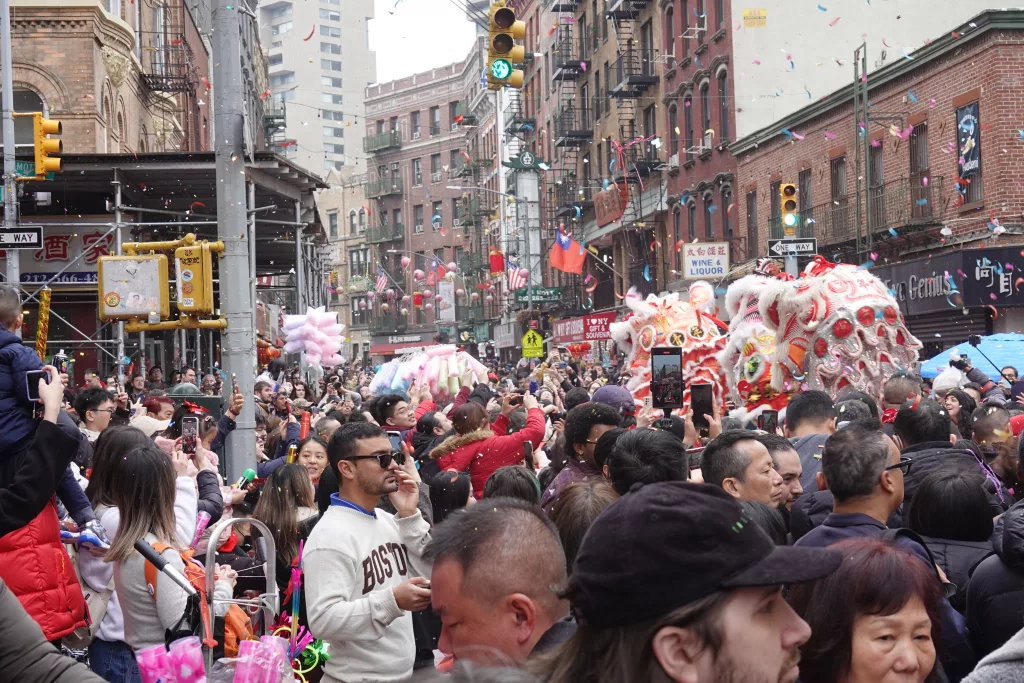
In 1996, Better Chinatown USA hosted its inaugural Chinatown Lunar New Year Parade & Festival, which was a resounding success. Two years later, the organization introduced a firecracker festival, initially held at the bustling intersection of Mott and Bayard Streets in Chinatown. However, due to the high volume of foot traffic, the event was relocated to Chatham Square three years later for safety and logistical reasons before finding its permanent home in Sara D. Roosevelt Park.
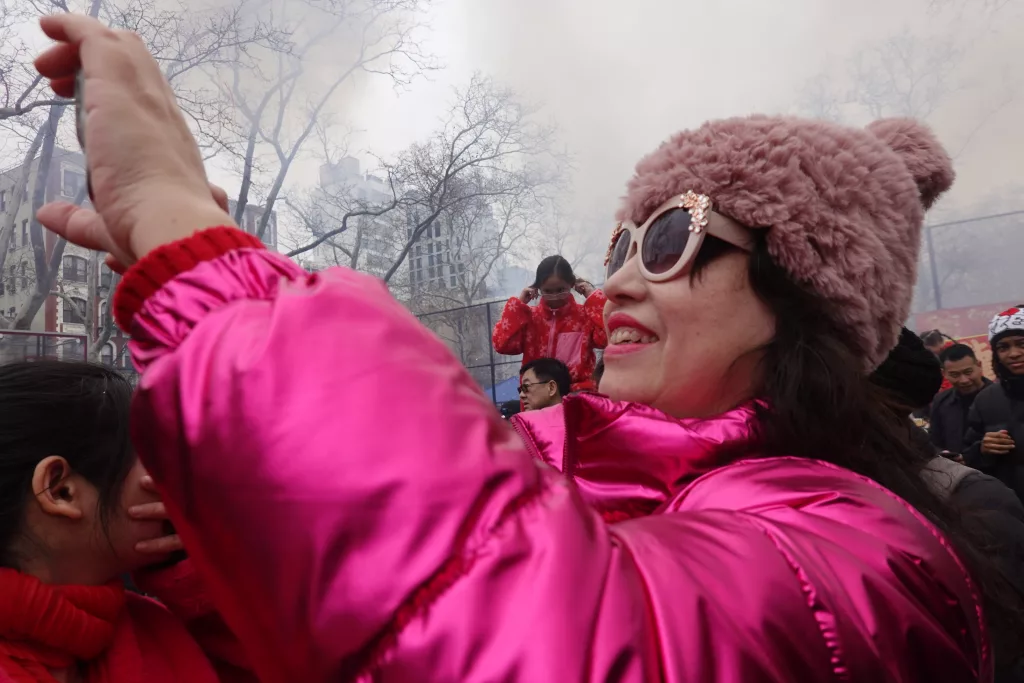
Today, the New Year Firecracker Ceremony & Cultural Festival and Lunar New Year Parade & Festival have become an annual hallmark event. It attracts many elected officials, who attend to extend New Year’s greetings to the Chinese community and express their recognition for the contributions and culture of the Asian community.
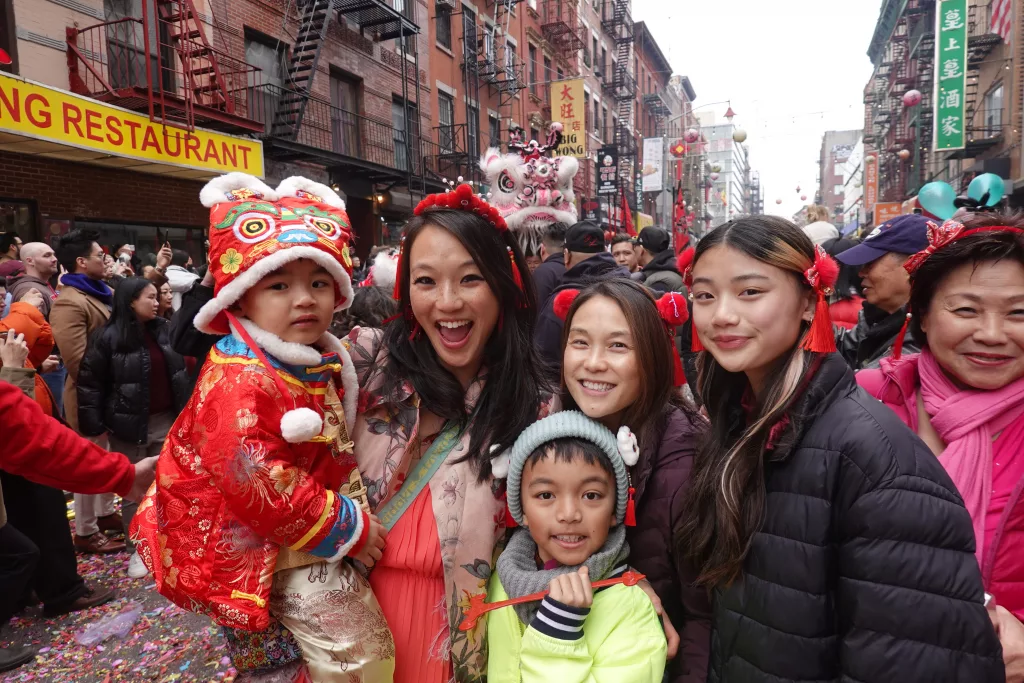
Jane Zoleta (second from the left), a Long Island resident, brought her 12-year-old daughter and 3-year-old son to Chinatown to celebrate the Lunar New Year, accompanied by her sister and her children. They enthusiastically posed for photos with the lion dance teams on Mott Street. Zoleta expressed that visiting Chinatown for the Lunar New Year has become an annual tradition for them. “My kids are half Filipino, and I want them to know their culture,” she said.
